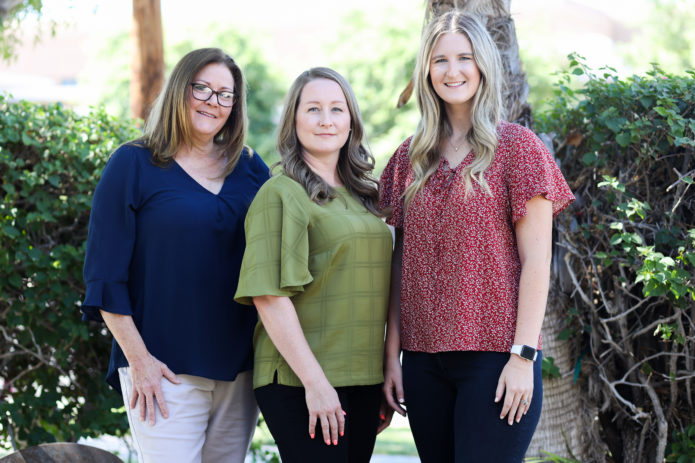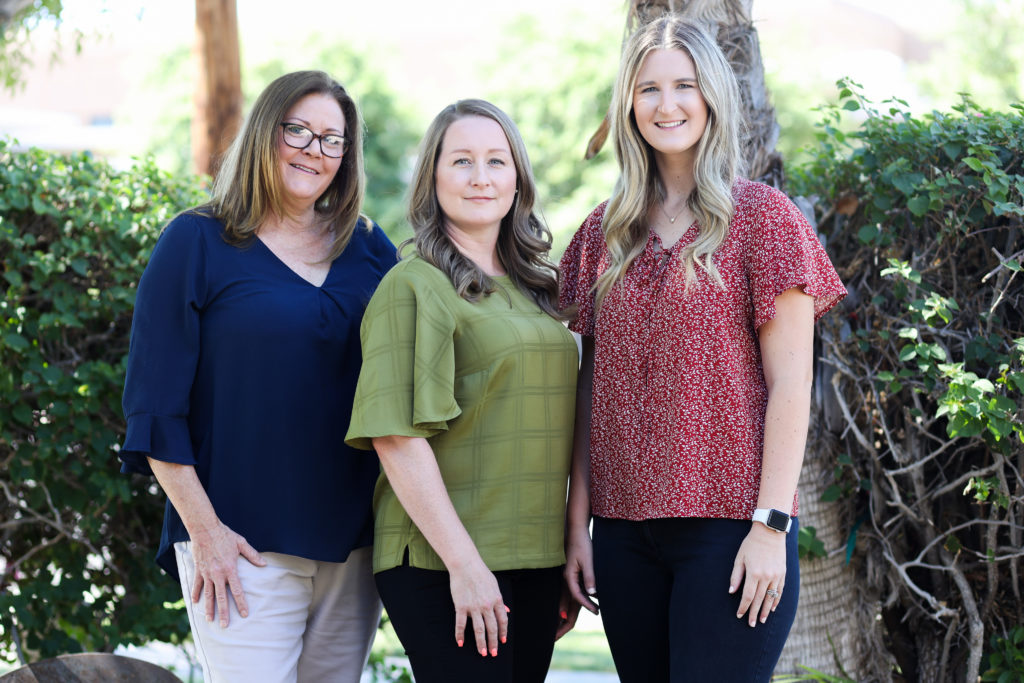
With 500,000 acres of farmland in the Imperial Valley, agriculture continues to not only be vital to the economy of the Valley, but now perhaps more than ever the crops grown on that land are critical to the entire country and a world that is recovering from the COVID-19 pandemic.
Considering just how essential Imperial Valley agriculture is, strong voices ready to advocate on behalf of the farming community are pivotal—especially considering the ongoing challenges farmers face, like increasing costs of production and an ongoing need to protect the Valley’s water rights during this time of drought, as they work to get their crops from the fields to dinner tables.
Rachel Magos, Shelby Trimm and Cherie Watte represent three of the strongest voices on behalf of Imperial Valley agriculture.
Magos was recently named executive director of the Imperial County Farm Bureau, Trimm became executive director of the Imperial Valley Vegetable Growers Association (and the Coalition of Labor, Agriculture and Business, “COLAB”) in May 2020, and Watte has continued to lead Imperial Valley Water (also known as IVH2O) since its inception in 2015. All three represent the specific needs of their members and in doing so strive to provide a united voice to ensure the ongoing success and a strong future for Imperial Valley agriculture.
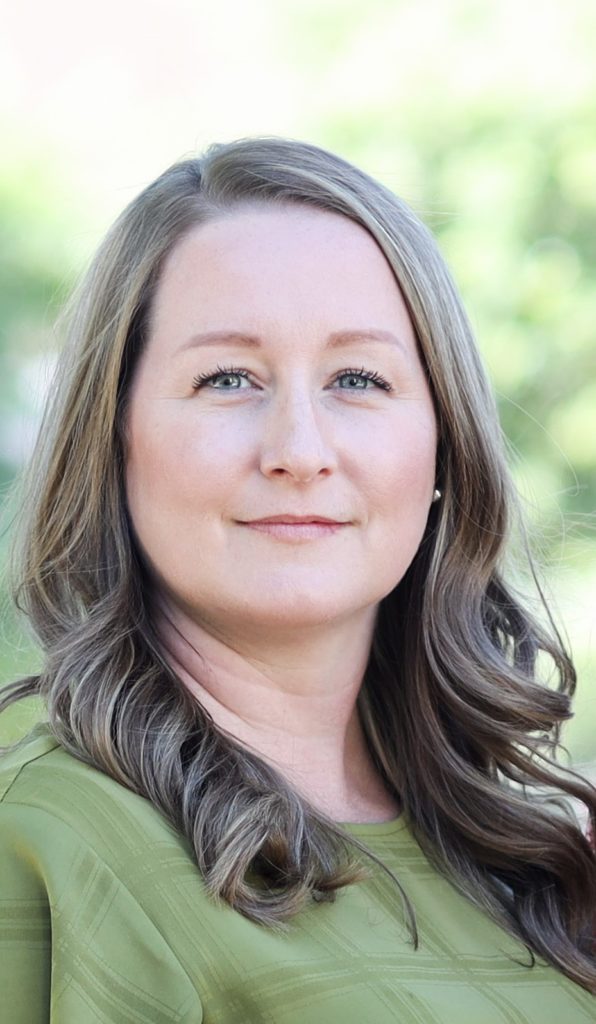
Rachel Magos
Magos took over as executive director when Brea Mohamed left the position to focus on her family, including a newborn, after leading the Farm Bureau since 2018. Magos said her new role is a natural extension of her years in agriculture, including the last seven with the Farm Bureau as an executive assistant—a position that saw her leading the total maximum daily load program to reduce silt and mineral run-off from local fields, planning events, and assisting with day-to-day operations.
Of her new position, Magos said, “For me to be able to serve the needs of agriculture and the Valley as a whole gives me a great sense of pride.”
She added, “I know that in the work I do in my job and in advocating for ag, I am working and advocating for the benefit and the prosperity of the entire Imperial Valley. The success of agriculture means success for everyone here.”
Trimm, who became executive director of the Imperial Valley Vegetable Growers Association when longtime director and agriculture advocate Kay Day Pricola retired, said she has had a passion for agriculture ever since she started showing cattle as part of the California Mid-Winter Fair & Fiesta at the age of nine. She knew from an early age she wanted to pursue a career in agriculture, and she focused her education on that industry.
Of her position, which includes her dual role of leading both Veg Growers and COLAB, she said, “It is hard to put into words how honored I am to be serving the needs of agriculture. It is an industry that means so much to not only me but the entire County of Imperial, so to even be considered a voice in representing this industry is very meaningful.”
Watte took on the role as executive director of IVH2O from the outset, helping to form the policies and mission statement of the organization. That role was an important addition to a career focused on agricultural policy management that has spanned three decades. Today, she not only leads IVH2O but balances that work with also serving as executive director of the statewide marketing organization called Buy California Marketing Agreement or California Grown.
She said, “I am from a pioneer ag family responsible for helping to secure the area’s water rights. Some of my vivid memories from childhood are from Bryant versus Yellen—the 160-acre limitation battles of the 1970s. I’d say my involvement in that issue as a child attending rallies helped shaped my interest in agriculture policy.”
Magos, Trimm and Watte each spoke about the individual roles of their organization but also of the need to work together to ensure agriculture can manage the challenges now occurring and those that could come.
Magos said the role of the Farm Bureau is to protect and promote agriculture, advocating for it at the local, state, and federal levels.
“Now more than ever, the agriculture industry is facing some very trying times whether it be all of the issues surrounding water and water rights or labor laws and overreaching regulations,” Magos said. “Imperial County Farm Bureau is at the forefront of all of these things and provides a platform and voice so that our challenges are heard as we work to ensure that farmers and ranchers are able to continue to provide a sustainable food source.”
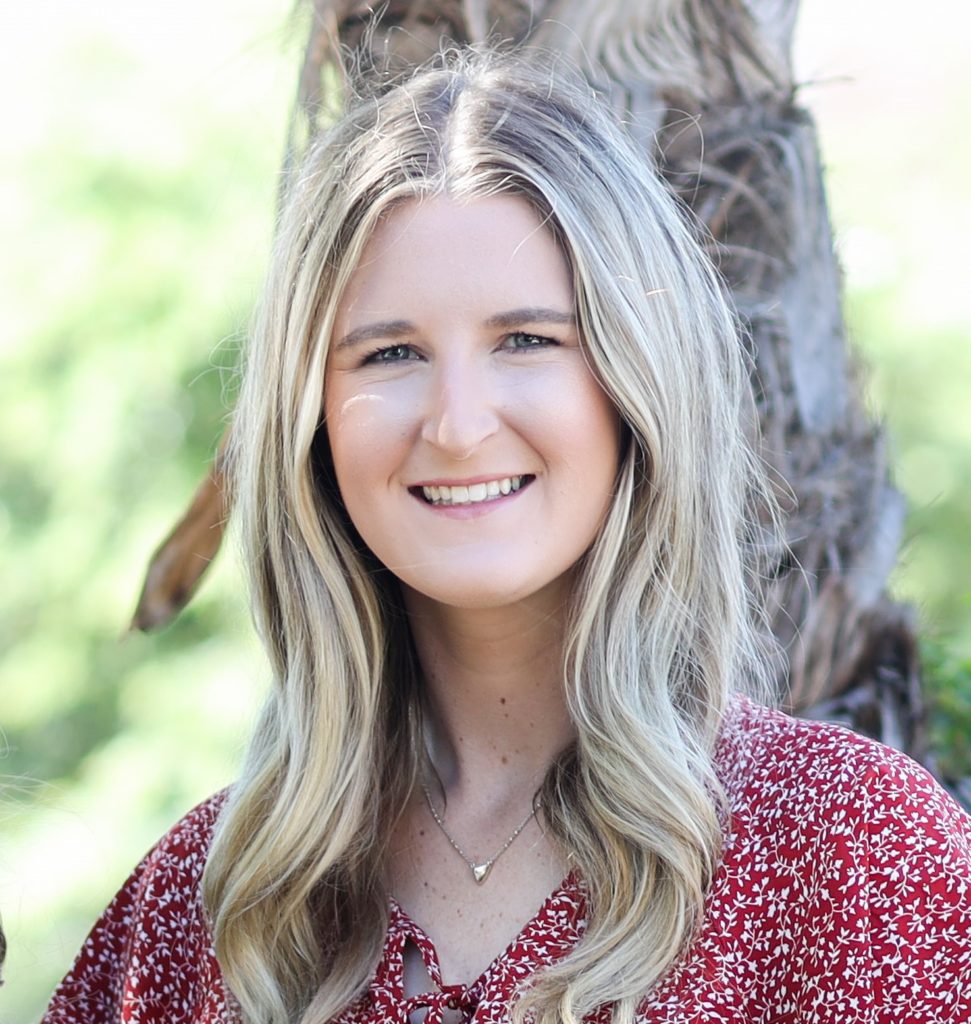
Trimm said of Vegetable Growers: “We fight the issues that affect the Imperial Valley vegetable industry. Our two main priorities right now are food safety and farmworker safety, but we also advocate for water conservation and use, environmental protection, and public education. A majority of vegetable growers are a member of this organization, which allows us to speak with a unified voice.”
Watte said IVH2O has a focused mission—protect and represent Imperial Valley landowner water rights.
All three executive directors have had a leading role in representing their organizations whether it be serving as a voice for agriculture when water matters are discussed at the Imperial Irrigation District Board of Directors meetings or meetings of the Imperial County Board of Supervisors. Their advocacy work expands beyond Imperial County as issues are debated at the state and federal levels that could have long-term effects on local agriculture.
A key aspect of their work involves ensuring not only that agriculture has a voice in local, state, and federal government proceedings, but that farmers in the Valley have the latest information on issues that can affect them, which is critical as farmers focus their efforts on ensuring high quality crops are produced in the Valley and that their own businesses and the industry in general thrive.
“I see myself as the person our members rely on to keep them abreast of current events and issues as well as make sure their best interest is at hand,” Magos said.
In a similar way, Trimm added, “I consider myself the voice representing the organization. I do the busy work and relay it to the board on a frequent basis. I keep them in the loop on issues that affect their operations and speak on their behalf when needed.”
Watte said, “My role with IVH20 means everything to me because of the community benefit. I’ve been extremely fortunate to work at the state, federal and international level on an assortment of agricultural policy matters. IVH2O is a way for me to put energy into my local community and to help shape policy that benefits my community.”
As for how the three organizations work together, all three voiced their respect for their fellow executive directors, adding that advocating together enables each organization to better serve the needs of its members.
“It’s reassuring to have colleagues who can understand what being in this role means,” Magos said. “Having the three groups and their executive directors being able to bounce ideas off each other and work collaboratively is a great asset.”
Trimm said, “A lot of our priorities overlap, so we try to divide our issues—that way we are not duplicating efforts. For example, IVH2O and ICFB take the lead on advocating for the protection of the Valley’s water rights, while IVVGA prioritizes food safety.”
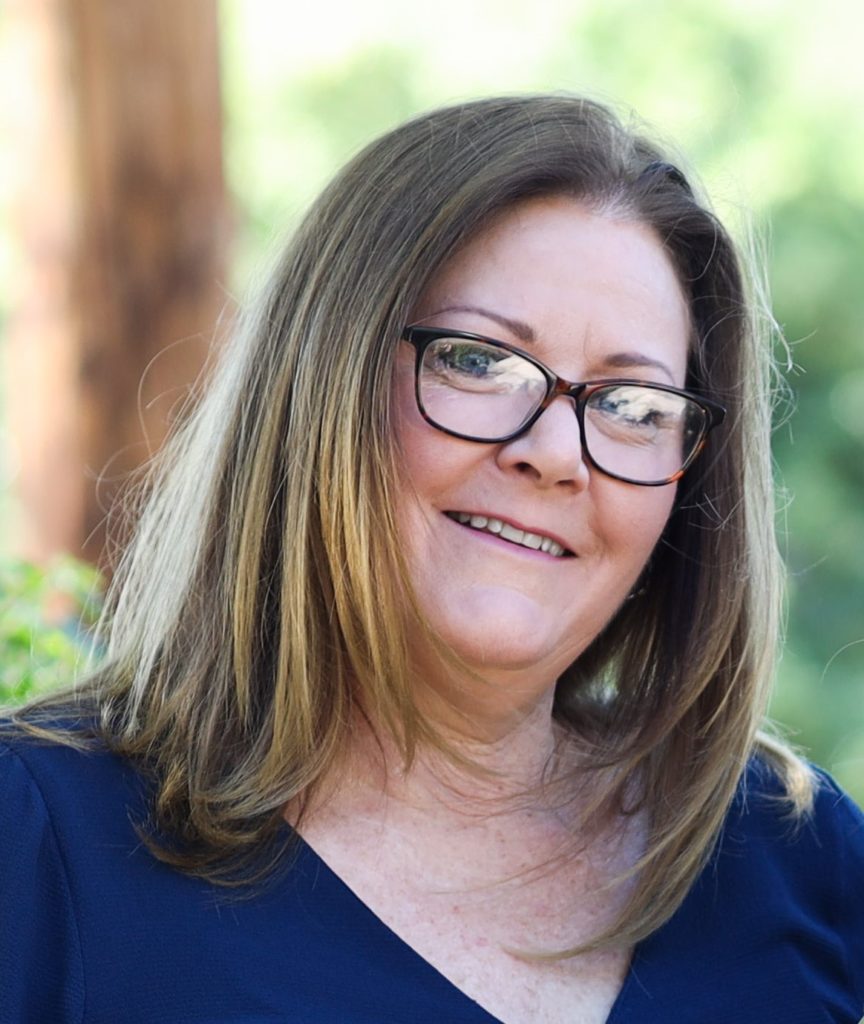
Cherie Watte
All three spoke of the importance of agriculture, crediting the pioneers who settled the Valley and built the infrastructure that enabled farming to prosper, and crediting the farmers and ranchers today who continue to be innovative in ensuring the continued success of agriculture.
“Agriculture is our local economy,” Trimm said. “It’s the biggest industry and accounts for almost half of our local jobs. Our prime farmland is one of the most productive growing regions in California. In the 1900s, this desert was transformed to become the booming industry that we know it as today.”
Magos added, “Over the last century, the Valley has grown to approximately 500,000 acres of farmed land. This means locally sourced food, thousands of direct and indirect jobs, the potential for new industry, environmental benefits, and so much more.”
Each executive director said while farming will face challenges ahead, they look forward to the future of agriculture in the Valley.
“My past, present and future are tied to the Imperial Valley, and I think what IVH2O does in representing landowner property rights is important to our future—mine and my children’s,” Watte said.
Trimm said, “The future of the agriculture industry is bright. Like the past, Imperial County will remain competitive and strong for many generations to come.”
Magos spoke of how active Imperial Valley farming businesses are in their support for local schools, charities, and community groups, stating they never hesitate to give when there is a need or to whomever has a need.
“So,” she said, “agriculture is a tremendous part of the Valley’s rich history and is important to the Valley’s future in many ways.”
